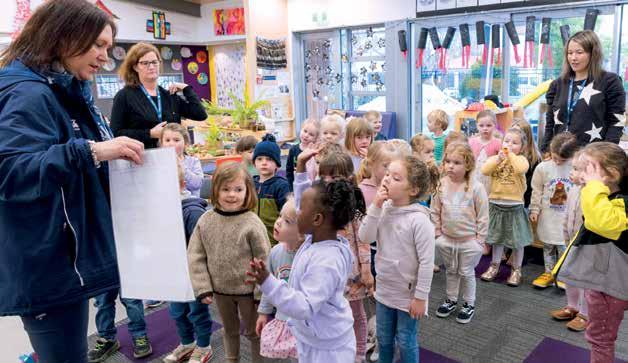
1 minute read
Pre-school Curriculum
What matters here – a Curriculum tailored to your child.
Self-expression, Self-regulation and Self-assured.
Learning to care for our world and all who live in it.
To prepare children for their primary school years, our rich Curriculum has been developed in consultation with the Junior Department at the St Andrew’s College Preparatory School to provide our children with a wide range of experiences.
The children are supported on a unique journey of investigation and discovery, as they undertake inquirybased learning in:
• literacy;
• numeracy;
• science;
• art;
• cultural studies;
• physical education;
• music.
We regularly assess and enhance our environment in response to the needs and interests of the children. Each child is placed in an age-appropriate group with a key teacher who is responsible for the documentation of their learning and development. Other specialist staff and teachers in the St Andrew’s College community are called on as required, in areas including Learning Support, Extension, and Evaluation.
Enrichment Activities
During the week, the children participate in one of our exciting enrichment activities. These support the Pre-school’s learning Curriculum and extend each child’s experiences and learning.
Activities include:
• yoga and mindfulness;
• cooking;
• drama;
• spanish lessons;
• te reo lessons.
Social Competency
In an ever-changing world, the importance of adaptability is modelled in all aspects of our Curriculum. Social-emotional competency is increasingly recognised as one of the most significant areas of early learning and development.

The St Andrew’s College Pre-school provides a nurturing physical and emotional environment, in which the children are encouraged to develop a broad set of skills in social competency, including the ability to form close, secure relationships, engage in positive interactions with others, problem-solve, be persistent, develop strategies for conflict resolution, understand, express, and regulate their emotions, and develop an understanding of positive behaviours for learning.






